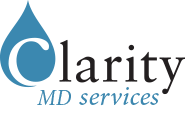On July 18th, the government proposed to make fundamental changes on income splitting and tax deferral for professional corporation. You may have received emails from multiple sources regarding this change. The purpose of this article is not to repeat what has been told. We believe there are planning opportunities for some physicians and dentists so they can be better prepared for this change.
If you have not yet incorporated:
In the past, we have always suggested not to incorporate unless you see at least $7,000 to $10,000 of tax savings in the year of incorporation. This is just to ensure that you would save money right from the start in case the tax benefits are eliminated in the following year (which is what will happen now). So, if you are considering to incorporate now or in the future, the same test should be applied regardless of these tax changes. Are you able to get substantial tax savings in the year of incorporation? If so, go ahead. Otherwise, you should re-evaluate in the following years.
If you have incorporated and are income splitting with family members:
We believe that the elimination of income splitting will inevitably happen. If so, this may very well be the last year you can sprinkle dividends to other family members. Your current financial or cash-flow plan is built based on the fact that you can extract money out of the corporation by involving a lower income family member. You should revisit your plan with your advisor to see how your future cash-flow will become without the income splitting and decide if you should take more money out of the corporation by the end of the year. For example, if your current dividend distribution schedule allows you to pay off your mortgage or debt in 10 years, you should meet with your advisor and re-draft the plan to see how much longer it will take once the income splitting is gone. You still have another 5 months to adjust your 2017 tax planning.
If you have incorporated and are saving money in the corporation:
Physicians saving for retirement are generally divided into two groups - with or without RRSP. Those who use RRSP will draw a salary from the corporation while the ones who do not believe in RRSP would draw only dividends. The decision boils down to whether you prefer all of your retirement savings in the corporation or being divided between your corporation and RRSP. There are pros and cons of each option and you may refer to this insightful article written by Jamie Golembeck, the Managing Director on Tax & Estate Planning of CIBC on two options. However, with the potential tax change on passive income in the corporation, we believe the scale will tip over to the RRSP going forward. If you have been drawing just dividends and leaving your savings in the corporation, you should revisit the salary and RRSP option if and when these new measures are put in place.
Investment Opportunities Going Forward:
In addition to the potential shift from corporate savings to RRSP, your investment strategy in the corporation will need to be revisited. Your current portfolio is constructed based on the current set of tax rules. Corporate class, dividend paying, capital gain focused type of investments and Participating Whole Life insurance are commonly used in a corporate investment portfolio as they are more tax efficient on asset accumulation in taxable environment. If additional tax on passive income is introduced, we suspect that there will be a need to shift more of your corporate savings into these tax preferred instruments. The point is that your current investment strategy is going to be outdated and requires an overhaul.
This article provides general information on various financial planning, insurance and tax issues. The information is not intended to constitute professional advice and may not be appropriate for a specific individual or fact situation. It is written by the author solely in their personal capacity and cannot be attributed to the firm with which they are affiliated. Neither the author nor the firm with which the author is associated shall accept any liability in respect of any reliance on the information contained herein. Readers should always consult with their professional advisors in respect of their particular situation.










